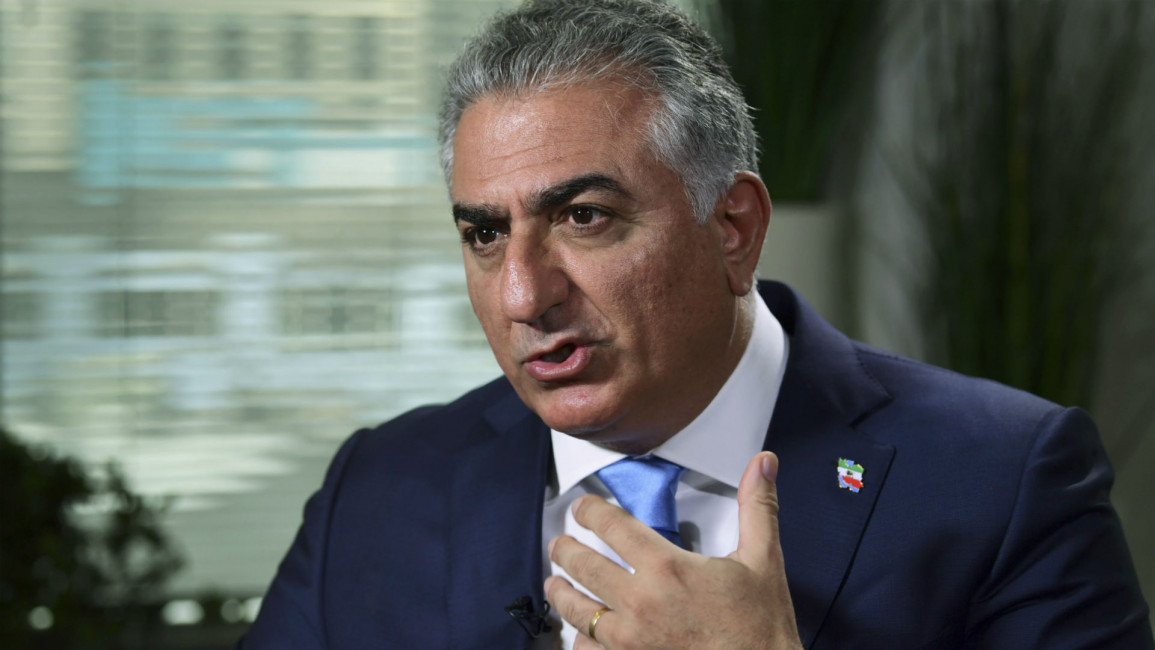Exiled Iranian prince sees chance for regime change
"We all know that regime change is the ultimate formula," Pahlavi, a harsh critic of the clerical rulers that have dominated Iran, said in an interview with The Associated Press.
"But that's what the Iranian people are asking. It's not going to be because the US says so, or the British say so, or the Saudis say so, or the Israelis say so. It's because it's what the Iranian people want."
More than want, he believes they may succeed.
For Pahlavi, who advocates replacing Tehran's theocracy with a pluralist, parliamentary democracy, the demonstrations that have rocked cities across Iran the last two weeks aren't about egg prices, unemployment or economic opportunity.
They're about the nation's greater grievance with its entire political system.
Pahlavi cast the current discontent as more threatening to the Islamic republic's survival than the violence that followed disputed elections in 2009 - when Iranians clashed over the direction of a government that would in any scenario be undemocratic and corrupt, and opposed to human rights and the separation of state and religion.
 |
These are usurpers that have invaded the country, taken us hostage and we shall get our country back. Today is the time. |  |
"The time has really come for a massive coalition," Pahlavi told AP in Washington, where he says he's trying to help Iranian activists, human rights advocates, union leaders, journalists and students pull in a broader pool of citizens in defiance of Ayatollah Ali Khamenei, Iran's supreme leader, and the clerics and officials comprising the country's ruling establishment.
"These are usurpers that have invaded the country, taken us hostage and we shall get our country back. Today is the time," he declared, endorsing the intensification of sanctions on Iranian leaders by Western countries.
It has been the ubiquity, more so than intensity, of the protests that have surprised many observers.
|
Whereas millions flooded Tehran's streets after the contested vote that returned hardliner Mahmoud Ahmadinejad to power, the movement this time has been more amorphous and leaderless, but perhaps wider in reach - spreading to more than 80 cities nationwide. In recent days, however, Iranian officials have described the protests as waning.
While many of the young faces in today's crowds of protesters couldn't conceivably have been born when the last shah still ruled, Pahlavi believes the support he is seeing in text messages and Telegram files is genuine, despite not seeing Iran in 38 years.
"It is not a matter of coincidence or, if you will, nostalgia," said Pahlavi, 57, insisting that a young, scrutinising Iranian generation is expressing "rapport" with his message of inclusion, and rejecting the Islamic republic's "brainwashing" and exclusion.
He outlined a vision of how to achieve democratic change: Intensifying "the struggle" until Iran's government implodes; initiating a transition process; holding popular elections for a constitutional assembly; enshrining secularism and democracy; free and fair voting for a first parliament and government.
But these are broad ideas that would each entail incredibly difficult processes. For example, Pahlavi said that whatever form Iran's future government takes, it should offer amnesty to military and paramilitary forces such as those in the Revolutionary Guard Corps so they abandon the camp of Khamenei and other hardliners.
Such a promise wouldn't resolve their massive stakes in Iran's economy, a source of significant popular disgruntlement.
And what of Pahlavi's path in this new Iran? Does it end with him sitting upon the Peacock Throne? Or does he aspire for something akin to the "Baba" role played by Mohammed Zahir Shah, Afghanistan's deposed king who returned after the fall of the Taliban as a symbolic but powerless figure of national unity?
"Of course, I stand ready to serve my country," Pahlavi said, noncommittally. "I have no idea in what capacity it may or may not be. I may end up just being a regular citizen living the rest of my days, or I may be called upon to play a bigger role."
"Everybody knows that I carry the monarchic heritage. If the country is more ready for a republic, even better. That's great."



